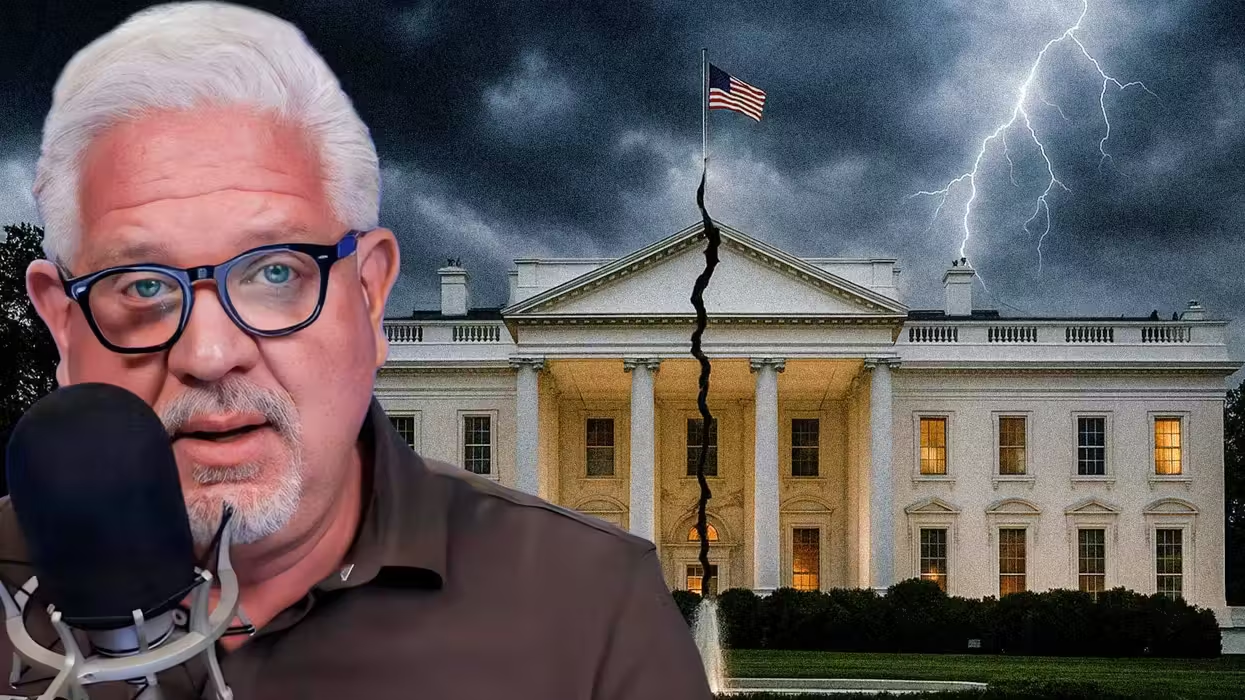© 2025 Blaze Media LLC. All rights reserved.
"Initial Israeli fears about the Arab Spring uprisings have begun to materialize in concrete ways."
The themes in The New York Times article on the problematic conundrums facing Israel will come as no surprise to readers of The Blaze. These are issues we've emphasized over and over. If the subject matter weren't so serious, you would almost be inclined to wonder if parts of the article had been secretly written by Glenn Beck.
Here is the setup:
JERUSALEM — With its Cairo embassy ransacked, its ambassador to Turkey expelled and the Palestinians seeking statehood recognition at the United Nations, Israel found itself on Saturday increasingly isolated and grappling with a radically transformed Middle East where it believes its options are limited and poor.The diplomatic crisis, in which winds unleashed by the Arab Spring are now casting a chill over the region, was crystallized by the scene of Israeli military jets sweeping into Cairo at dawn on Saturday to evacuate diplomats after the Israeli Embassy had been besieged by thousands of protesters.
It was an image that reminded some Israelis of Iran in 1979, when Israel evacuated its embassy in Tehran after the revolution there replaced an ally with an implacable foe.
The most recent trigger point, of course, was the attack on the Israeli embassy in Egypt last week. The Times article looks at the implications for Israel, Egypt and the United States:
Facing crises in relations with Egypt and Turkey, its two most important regional allies, Israel turned to the United States. Throughout the night on Friday, desperate Israeli officials called their American counterparts seeking help to pressure the Egyptians to protect the embassy.President Obama “expressed his great concern” in a telephone call with Mr. Netanyahu, the White House said in a statement, and he called on Egypt “to honor its international obligations to safeguard the security of the Israeli Embassy.”
Washington — for whom Israel, Turkey and Egypt are all critical allies — has watched tensions along the eastern Mediterranean with growing unease and increasing alarm. And though the diplomatic breaches were not entirely unexpected, they prompted a flurry of diplomatic activity in Washington.
The mayhem in Cairo also exacted consequences for Egypt, raising questions about whether its military-led transitional government would be able to maintain law and order and meet its international obligations. The failure to prevent an invasion of a foreign embassy raised security concerns at other embassies as well.
The Egyptian government responded to those questions Saturday night, pledging a new crackdown on disruptive protests and reactivating the emergency law allowing indefinite detentions without trial, one of the most reviled measures enacted under former President Hosni Mubarak.
While addressing the situation with Turkey, the article does include the expected amount of blame for Israeli actions. But the increasing geopolitical likelihoods are becoming clear:
Potential side effects of the diplomatic disputes have already emerged.The growing hostility from Egypt could require a radical rethinking of Israel’s defense doctrine which, for the past three decades, counted on peace on its southern border. As chaos in the Sinai has increased and anti-Israel sentiment in Egypt has grown, military strategists here are examining how to beef up protection of the south, including by the building of an anti-infiltration wall in the Sinai.
A threat by Turkey last week to challenge Israel’s plans for gas exploration in the eastern Mediterranean could threaten Israel’s agreement with Cyprus on gas drilling and could worsen tensions with Lebanon on drilling rights.
Initial Israeli fears about the Arab Spring uprisings have begun to materialize in concrete ways. When the uprisings began in Tunisia and Egypt at the start of the year, little attention was directed toward Israel because so much focus was on throwing off dictatorial rule and creating a new political order.
Traditionally, many Arab leaders have used Israel as a convenient scapegoat, turning public wrath against it and blaming it for their problems. The faint hope here was that a freer Middle East might move away from such anti-Israel hostility because the overthrow of dictators would open up debate.
But as the months of Arab Spring have turned autumnal, Israel has increasingly become a target of public outrage.
Want to leave a tip?
We answer to you. Help keep our content free of advertisers and big tech censorship by leaving a tip today.
Want to join the conversation?
Already a subscriber?
more stories
Sign up for the Blaze newsletter
By signing up, you agree to our Privacy Policy and Terms of Use, and agree to receive content that may sometimes include advertisements. You may opt out at any time.
Related Content
© 2025 Blaze Media LLC. All rights reserved.
Get the stories that matter most delivered directly to your inbox.
By signing up, you agree to our Privacy Policy and Terms of Use, and agree to receive content that may sometimes include advertisements. You may opt out at any time.





